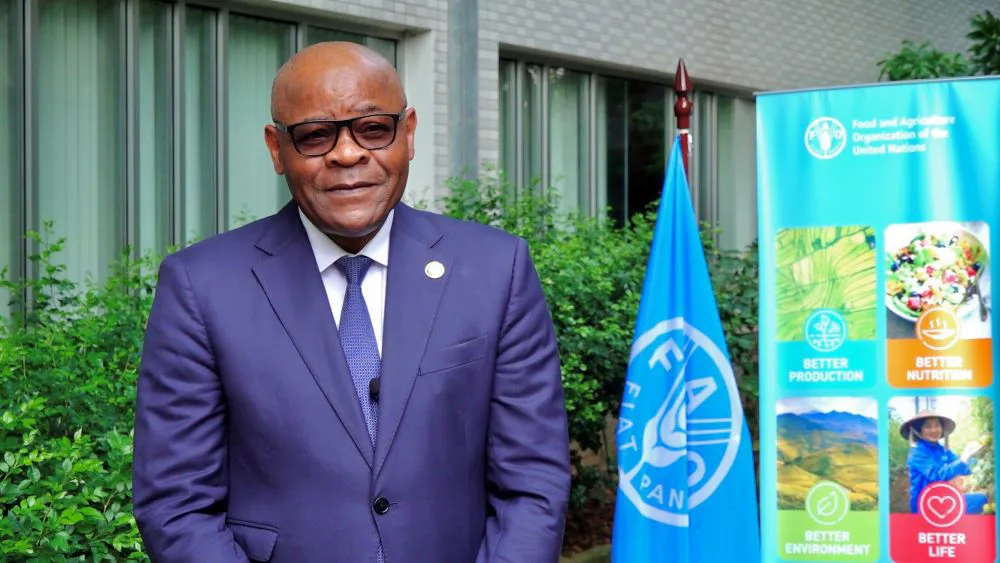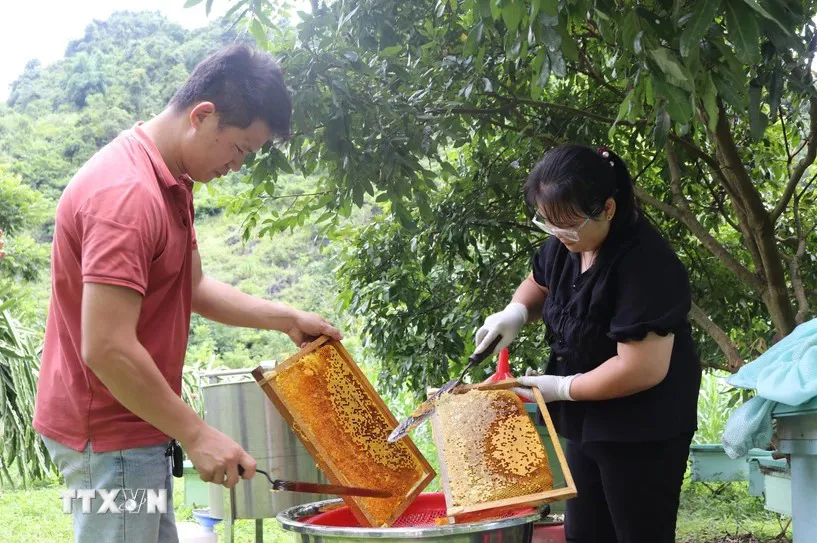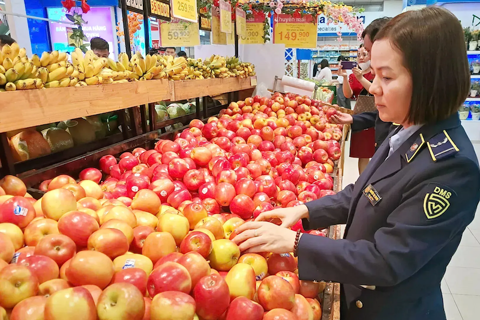Vietnam’s honey is ready to make waves in global market
Vietnam's honey, which was nominated for a special agricultural product in 2023, has shown notable progress along the whole value chain.
Honey is anticipated to be added to Vietnam’s agricultural products which have earned global popularity.
| A honey product from Vietnam's northern province of Hoa Binh. Source: Van Tien Cooperative |
On the occasion of World Bee Day (May 20), The Hanoi Times is honored to introduce ideas shared by Rémi Nono Womdim, FAO Representative in Vietnam, about the product that means a lot to the world market and the country’s agriculture in particular.
Vietnam is globally celebrated for its rich diversity of agricultural products. While the world enjoys its coffee, rice, seafood, and bountiful harvests of fruit and vegetables, another made-in-Vietnam product is ready to create a buzz in the marketplace.
As the Food and Agriculture Organization of the United Nations (FAO) joins its partners in Vietnam to celebrate World Bee Day 2024 on 20 May, Vietnamese honey is also poised to realize its commercial potential and play a meaningful role in achieving more efficient, inclusive, resilient and sustainable agrifood systems.
To help achieve these goals, with the theme ‘Bee engaged with youth’, World Bee Day is a call for action to encourage young people in Vietnam and globally to help strengthen pollination-friendly agricultural production and support sustainable agricultural practices.
Bees and other pollinators play a vital role in Vietnam’s agrifood systems, contributing to food security and nutrition. By carrying pollen from one flower to another, they allow plants to reproduce and thereby facilitate food production. In fact, 75% of the world’s most productive food crops – particularly fruits, vegetables, and nuts – depend, at least in part, on pollinators.
| Rémi Nono Womdim, FAO Representative in Vietnam. |
This call to highlight the importance of involving young people in Vietnam’s beekeeping and pollinator conservation efforts, as the future stewards of our environment, comes at a critical time as bees, pollinators, and many other insects are declining in number. A reliance on toxic chemicals, together with habitat loss, fragmentation, and environmental pollution poses a real threat to 200,000 species of animals that act as pollinators, including more than 20,000 species of bees.
That is why FAO is also working to realize sustainable beekeeping practices in Vietnam. Through FAO’s corporate flagship initiative, the One Country One Priority Product (OCOP), Vietnamese honey in 2023 was nominated as a special agricultural product and has made significant progress in developing its value chain, including production, distribution, and consumption.
These steps to apply advanced beekeeping technology to produce higher quality honey are critical to boost export revenue for the predominately ethnic farmers who live in mountainous communities.
To further support farmers and bring prosperity to rural communities that need it most, there is a need to unlock the rich potential of the local market. Domestically, honey consumption averages just 100 grams per person a year and is typically consumed in its purest form for medicinal purposes. This is despite honey’s natural minerals and vitamins being the perfect complement to a healthy diet.
As consumers, we can all make a difference. To mark World Bee Day, let’s commit to becoming champions of sustainable agriculture that protects essential pollinators and nourishes the ecosystem while improving the quality and quantity of food everywhere and for everyone.
Vietnam’s honey volume reaches about 50,000 tons per year with 90% of it being exported. Up to 90% of the country’s honey is shipped to the US.
So far, honey in the northern mountainous provinces of Son La and Ha Giang has received both geographical and trademark certification.
| Honey harvest in Vietnam's northern province of Cao Bang. Photo: VNA |















